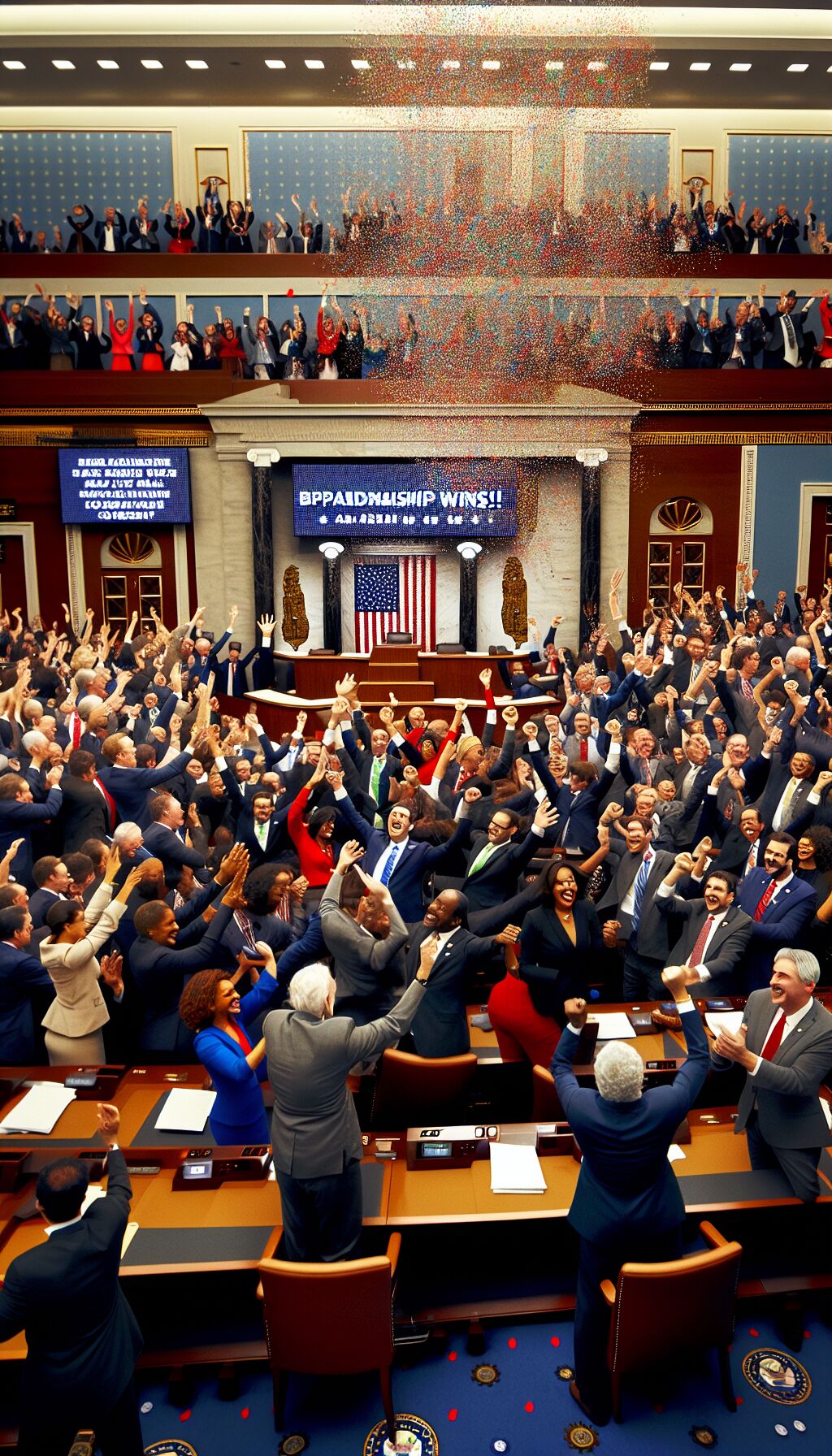House Passes Spending Bill to Avert Government Shutdown
In a pivotal move to prevent a looming government shutdown, House lawmakers approved a newly negotiated spending bill on Friday, a decision that resonated positively among many members of both parties. The overarching sentiment reflected in their ranks showed a collective need to push past hurdles that had become a source of internal conflict just days earlier.
A Compromise Without the Debt Limit
The earlier proposals had included contentious provisions that raised concerns, particularly regarding the extension of the debt limit. However, this new bill, which garnered overwhelming bipartisan support with a vote tally of 366-34, notably excluded the debt limit extension sought by incoming President Donald Trump.
Republican leaders made the text available shortly before the final vote, showcasing their commitment to fostering unity through negotiation. The omission of the debt limit provision was a critical adjustment aimed at securing broader support. This particular element had initially sparked concern among Democrats and fiscal conservatives within the Republican Party, leading to the rejection of previous bills proposed just days prior.
The Tumultuous Path to Approval
The political landscape leading up to the vote was fraught with uncertainty. An initial bill that had been championed by President-elect Trump and his allies met with failure on Wednesday, igniting a scramble among lawmakers to find a viable path forward. Following that setback, an alternative bill was approved by Trump but ultimately floundered on the House floor, highlighting the divisions among party members regarding fiscal policy and government spending.
This confluence of events has brought lawmakers to a critical juncture, where the urgency to avert a government shutdown became a driving force in the negotiations. With the clock ticking down, the approval of the spending bill underscores a renewed commitment to bipartisanship and cooperation in the face of significant challenges.
Key Provisions of the Bill
The newly approved legislation carries vital components that were present in previous versions, designed to address immediate and pressing needs across various sectors of society. Among the highlighted provisions is a substantial billion allocation for aid to farmers, alongside substantial agriculture subsidies. This funding is seen as essential by many lawmakers who advocate for the welfare of those in the agricultural sector, especially in light of recent economic pressures.
In addition to agricultural support, the bill includes a considerable 0 billion in disaster aid aimed at assisting U.S. residents impacted by catastrophic events, including devastating hurricanes that disproportionately affected certain regions. This funding will provide critical relief to those who have been struggling to recover from natural disasters, emphasizing the government’s role in offering support during times of crisis.
Leadership’s Assurance
Prior to the vote on Friday, House Speaker Mike Johnson expressed confidence that the passage of the bill would avert a government shutdown and ensure that essential services continue unaffected. “We will not have a government shutdown, and we will meet our obligations for our farmers who need aid, for the disaster victims all over the country, and for making sure that military and essential services, and everyone who relies upon the federal government for a paycheck is paid over the holidays,” Johnson stated, alluding to the immediate relief provisions embedded within the bill.
Next Steps: The Senate’s Role
With the successful passing of the spending bill through the House, attention now turns to the Senate, where the legislation is set to be reviewed and voted upon. The trajectory of the bill’s acceptance will significantly determine the federal government’s capacity to operate effectively and provide necessary services amid concerns of a shutdown approaching the holiday season.
The stakes are high, and the interplay of political dynamics within the Senate will ultimately shape the outcome. Lawmakers on both sides of the aisle will need to navigate their differing priorities and perspectives to achieve bipartisan support for the bill moving forward.
Conclusion: A Path Forward
The passage of the spending bill marks a crucial step for lawmakers seeking to ensure the continuity of government services and aid for those in need. As the Senate prepares for its deliberations, the implications of this decision will reverberate throughout Congress and the nation, reflecting both the challenges and triumphs inherent in American governance.
The approval signifies a moment of potential unity in a highly polarized political environment, underscoring the importance of collaborative efforts in addressing pressing issues facing the nation. With hope for a successful outcome in the Senate, lawmakers remain focused on advancing policies that will benefit constituents and uphold the functions of government in turbulent times.
